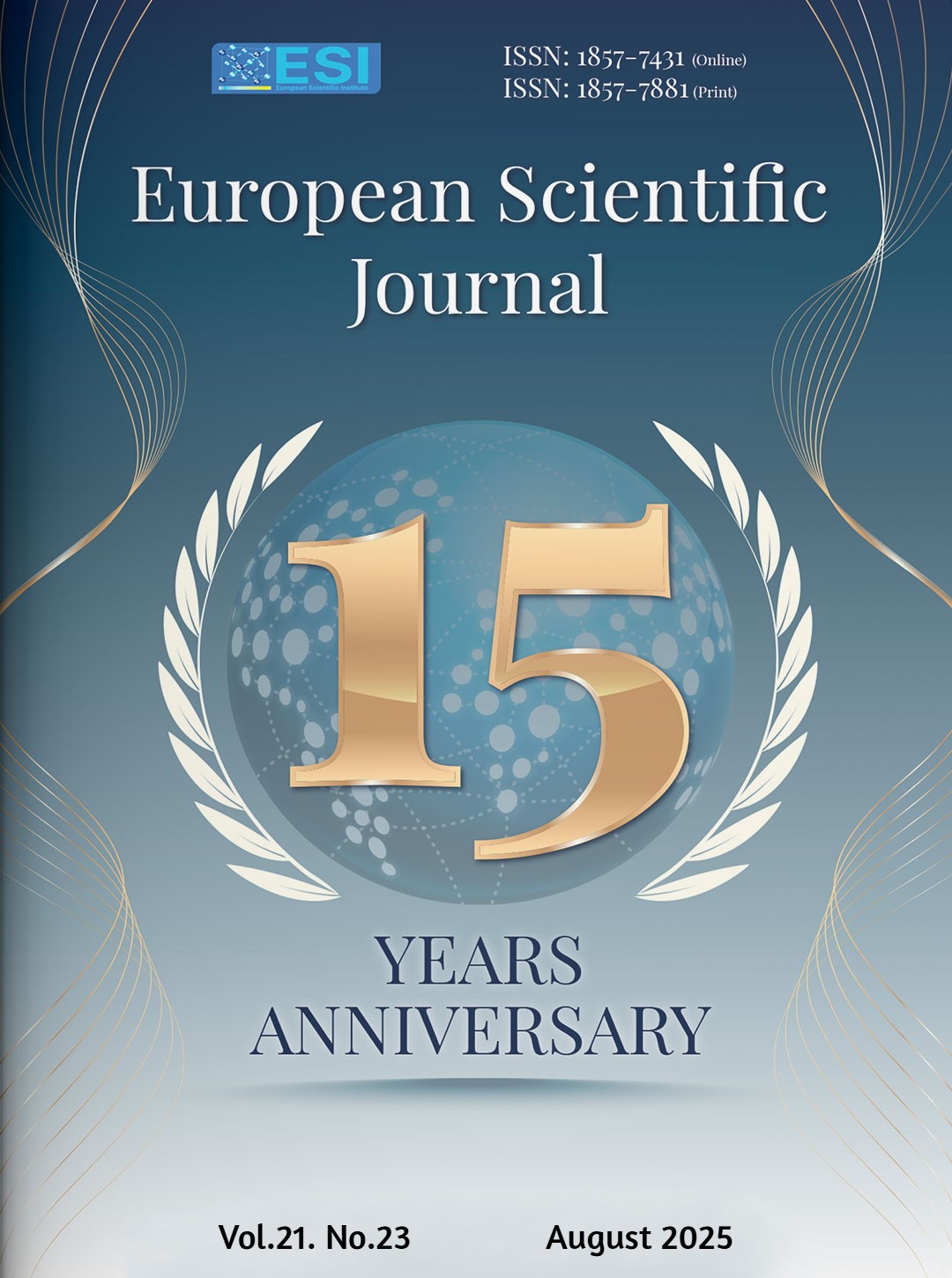Descriptive Study of Social Relations in the Working Environment of Compagnie Ivoirienne de Coton (COIC): The Case of COIC Korhogo (Côte d'Ivoire)
Abstract
The objective of this study is to understand the impact of the relational environment on employees' professional experiences, with a focus on social interactions in the workplace. It is about showing the social relations in the work environment of the Ivorian Cotton Company in the locality of Korhogo (Côte d'Ivoire). The study is part of a qualitative approach. The research instrument implemented is the interview guide, which was carried out with thirty (30) people, namely twenty-eight (28) women workers in the COIC cotton company, one (01) business manager, and one (01) team leader. This led to the results according to which the relational environment is characterized by relations with the entourage reflecting professional interactions. Indeed, social relations in the work environment play a crucial role in the productivity, well-being, and satisfaction of employees. A good social relationship can generate a climate of trust, collaboration, and mutual support between colleagues. Management policies can also contribute to strengthening social relations in the workplace.
Downloads
PlumX Statistics
References
2. BIERNACKI, Patrick, & WALDORF, Dan. (1981). Snowball Sampling: Problems and Techniques of Chain Referral Sampling. Sociological Methods & Research, 10(2), 141–163. https://doi.org/10.1177/004912418101000205
3. BOURDIEU, Pierre. The Logic of Practice. Paris: Éditions de Minuit, 1980.
4. CRESWELL, John Wesley. (2014). Research Design: Qualitative, Quantitative, and Mixed Method Approaches. Thousand Oaks: Sage Publications.
5. DEJOURS, Christophe. (2010). Suffering in France: The Normalization of Social Injustice. Paris: Éditions du Seuil.
6. DOUGLAS, McGregor. (1960). The Human Side of Enterprise. New York: Mcraw-Hill.
7. DURKHEIM, Émile. (1893). The Division of Labour in Society. Paris: Alcan.
8. GALLUP, George. (2023). State of the Global Workplace. Washington, D.C.: Gallup Press.
9. GAXIE, Daniel. (1994). Representative Democracy. Paris: Montchrestien.
10. GOFFMAN, Erving. (1969). The Presentation of Self in Everyday Life. London: Penguin Books.
11. HUSSERL, Edmund. (2001). Logical Investigations. English translation by J.N. Findlay. London: Routledge. (Original work 1900–1901)
12. KARASEK, Robert A. (1979). Job Demands, Job Decision Latitude, and Mental Strain: Implications for Job Redesign. Administrative Science Quarterly, 24(2), 285–308. https://doi.org/10.2307/2392498
13. KAREN, Nathalie. (2009). Stress in Women: Understanding and Preventing Stress in Working Women. Paris: Éditions du Seuil.
14. KERGOAT, Danièle. (2010). Work Practices: The Company and Its Employees. Paris: La Découverte.
15. LEWIN, Kurt. (1947). Frontiers in Group Dynamics: Concept, Method and Reality in Social Science; Social Equilibria and Social Change. In Human Relations. London: Tavistock Institute.
16. LUPIEN, Sonia J. (2010). The Brain under Stress: How Stress Affects Our Behaviour. Montréal: Les Éditions de l’Homme.
17. MILES, Matthew B., HUBERMAN, A. Michael, & SALDAÑA, Johnny. (2014). Qualitative Data Analysis: A Methods Sourcebook (3rd ed.). Thousand Oaks, CA: Sage Publications.
18. PAILLE, Paul, & MUCCHIELLI, Alex. (2021). Qualitative Analysis in Human and Social Sciences (6th ed.). Paris: Armand Colin.
19. TAUSIG, Mark. (1999). The Social Meaning of Work: Essays on the Role of Work in the Modern World. New York: Routledge.
20. VAISMORADI, Mojtaba, JONES, Jacqueline, TURUNEN, Hannele, & SNELGROVE, Sherrill. (2016). Theme development in qualitative content analysis and thematic analysis. Journal of Nursing Education and Practice, 6(5), 100–110. https://doi.org/10.5430/jnep.v6n5p100
Copyright (c) 2025 Taiba Germaine Ainyakou

This work is licensed under a Creative Commons Attribution 4.0 International License.








